MY FIRST SIX MONTHS AS AN OPERATOR (Searchfunder Interview)

February 09, 2018
by a searcher from Harvard University - Harvard Business School in 1970 Walton Dr, Burlington, WA 98233, USA
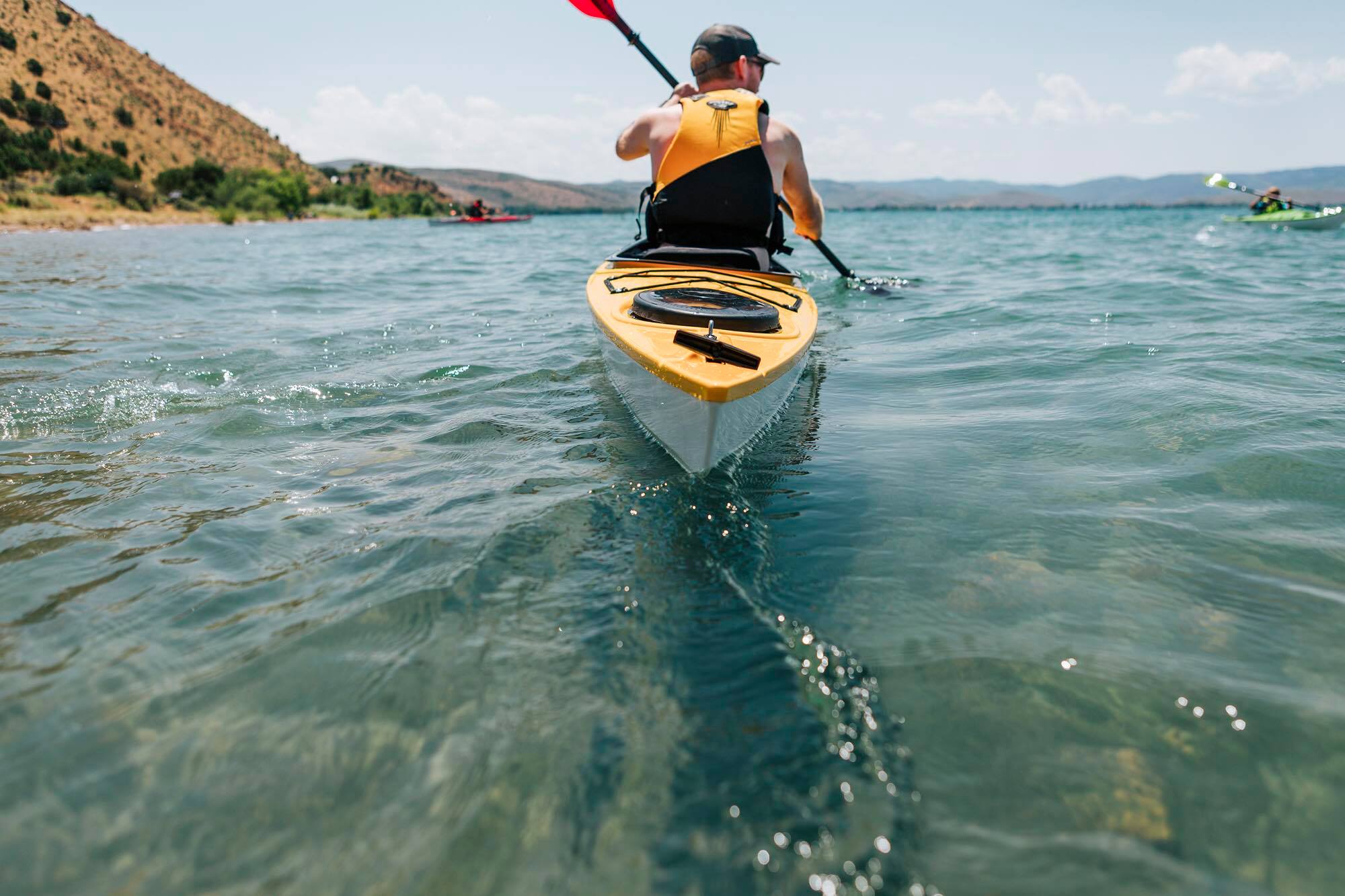 SEARCHFUNDER INTERVIEW OF SCOTT HOLLEY
SEARCHFUNDER INTERVIEW OF SCOTT HOLLEY
At the end of 2017, we spoke with Scott Holley, President of Eddyline Kayaks.
How did you find your company?
When I started my search, I set a really strict geographic parameter for my search of 5 counties in Northwestern Washington. To situate it, it's about half way in-between Seattle, Washington and Vancouver BC and anything within about a 45-minute drive for me. It was strictly for personal reasons. I've lived in the area for several years. My wife is well established here as well as my kids. We are situated 90 miles in between two cities north of 3 million people each. I figured there wasn't any excuse not to be able to find something in my own backyard given the number of companies within that geographic area.
That makes sense.
When I started with the search, I began with my personal network. I had been pretty involved in non-profit and on various boards. Because of that, I had a lot of people within my personal network who were accountants, attorneys, and economic development officers. I started there.
I spent the first couple months explaining the model. There hadn't been a lot of search fund activity in this area. Finding the company was within a pretty short order.
My entire funnel of companies was about 20. There were not a lot of companies I looked at. Most of those were a quick pass. I ended up doing 3 LOIs -- with one of them being with Eddyline.
I was introduced to Eddyline through the economic development agency for the county. We ended up having our first meeting in the office of the economic development advisor. So, a very warm intro.
I'd say it's probably the equivalent of a hot intro (chuckling).
Exactly. It's always a trade-off between a higher probability of success with warm intros but they take a lot more work versus you can cover a lot of ground really quickly with outbound emails and phone calls.
Why do you say the warm intros take more work?
Because you are talking about a physical in-person meeting without any probability or indication of success. It could still be a dry well. If I call up the economic development officer in Skagit county, "I got your name from so and so. Do you know companies for sale?" That person might be guarded. They may not know if I am serious or not. Or, they may just be busy and not give it much time or consideration. But, if you are sitting across the table with them over coffee and having the same conversation, the odds are that it will create a referral are a lot higher. But you've invested an hour or two.
So, that's how I ended up meeting the company.
Tell us about the deal closing process?
I would say it was relatively smooth. There were a couple delays during the process. For instance, there was a minority investor. When he saw the letter of intent, he decided to place a competing bid against me for the portion he didn't own. It created a delay.
Then, there were normal delays relative to the negotiation. The SBA process took more time than I had anticipated. I'd say: If you are anticipating SBA financing, I recommend budgeting 3 months until when you will be able to close the transaction.
Otherwise, it was a pretty smooth process.
How long did it take you to find the company? And, then how long from LOI to close?
We were introduced end of September of###-###-#### I put in the first letter of intent in January###-###-#### We had a signed letter of intent within a month or 6 weeks, which was delayed due to the other offer. We then closed June 12th.
Did you have other companies in the hopper during this 9-month process?
No, I was not searching at all during the 9 months. It's probably not best practice. I was pretty focused on carrying this one across the finish line.
Tell us about your first day?
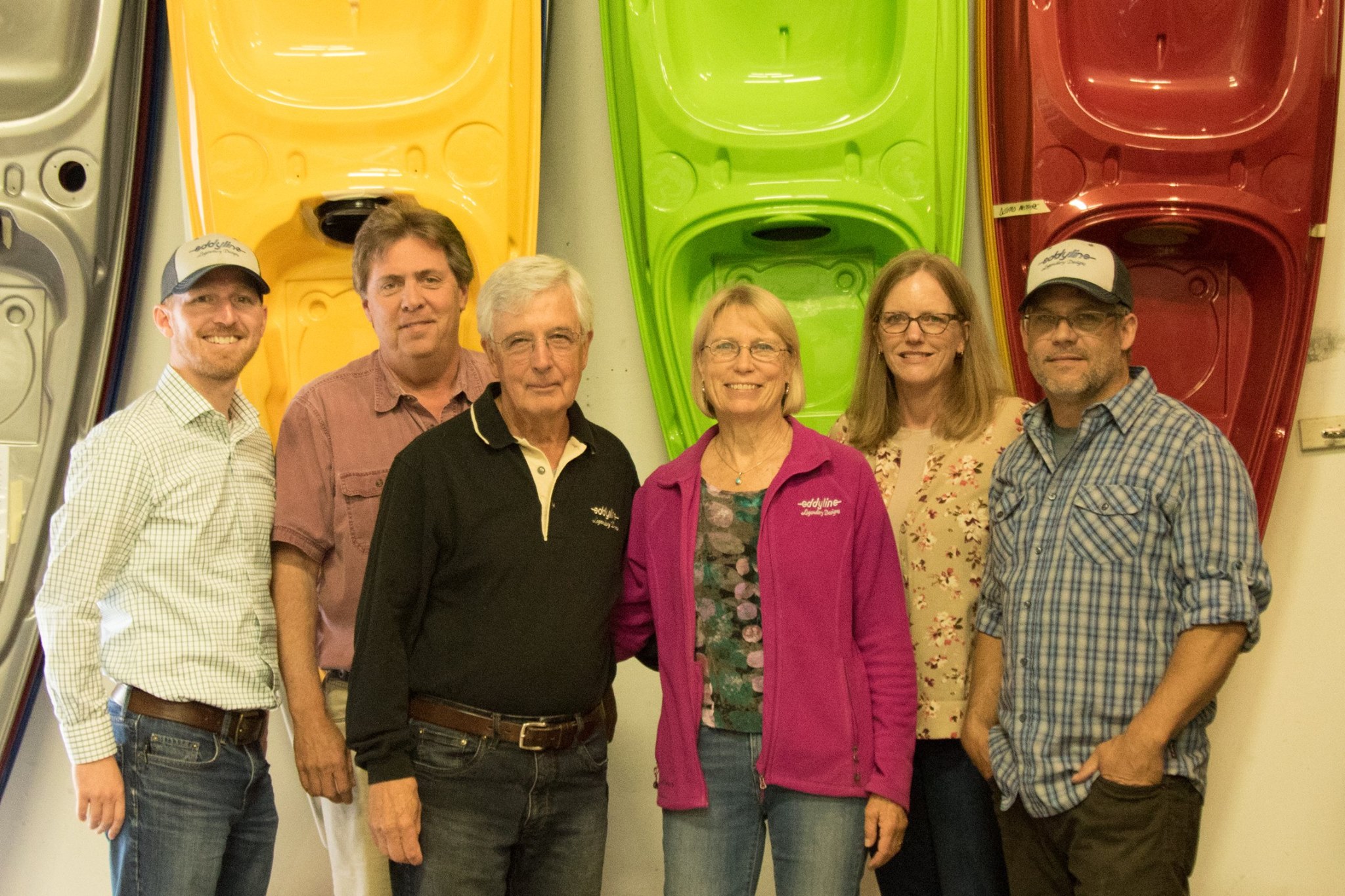 We closed the transaction June 12th. Kayak manufacturing, as you can imagine, is a pretty seasonal business. That was right at the height of the insanity. Day 1 was crazy and hectic. We had an issue at the transition where we tried to port over the accounting information to create a new file. We had some hiccups there, which delayed our ability to invoice and manage our inventory. We were basically going off spreadsheets and paper records for a couple of weeks as we were trying to get our accounting system back on line. That created a mini-crisis right out of the gate.
We closed the transaction June 12th. Kayak manufacturing, as you can imagine, is a pretty seasonal business. That was right at the height of the insanity. Day 1 was crazy and hectic. We had an issue at the transition where we tried to port over the accounting information to create a new file. We had some hiccups there, which delayed our ability to invoice and manage our inventory. We were basically going off spreadsheets and paper records for a couple of weeks as we were trying to get our accounting system back on line. That created a mini-crisis right out of the gate.
Otherwise, Day 1 was great. We had a ton of orders coming in. There was a lot of energy and a lot excitement. The industry reacted incredibly favorably towards it. By a real random coincidence, the owner of another long-term legacy brand announced that he would be discontinuing about 2 hours after our announcement. So, it was a Tale of Two Companies.
Employees reacted very favorably. We presented it to the team as: "Nothing really changes." They accepted that. There wasn't a lot of questions or concerns there. We didn't lose any employees. We got lots of well wishes from customers and vendors. There weren't any snags on that side.
(photo: The new ownership group with the previous owners on the day of transition)
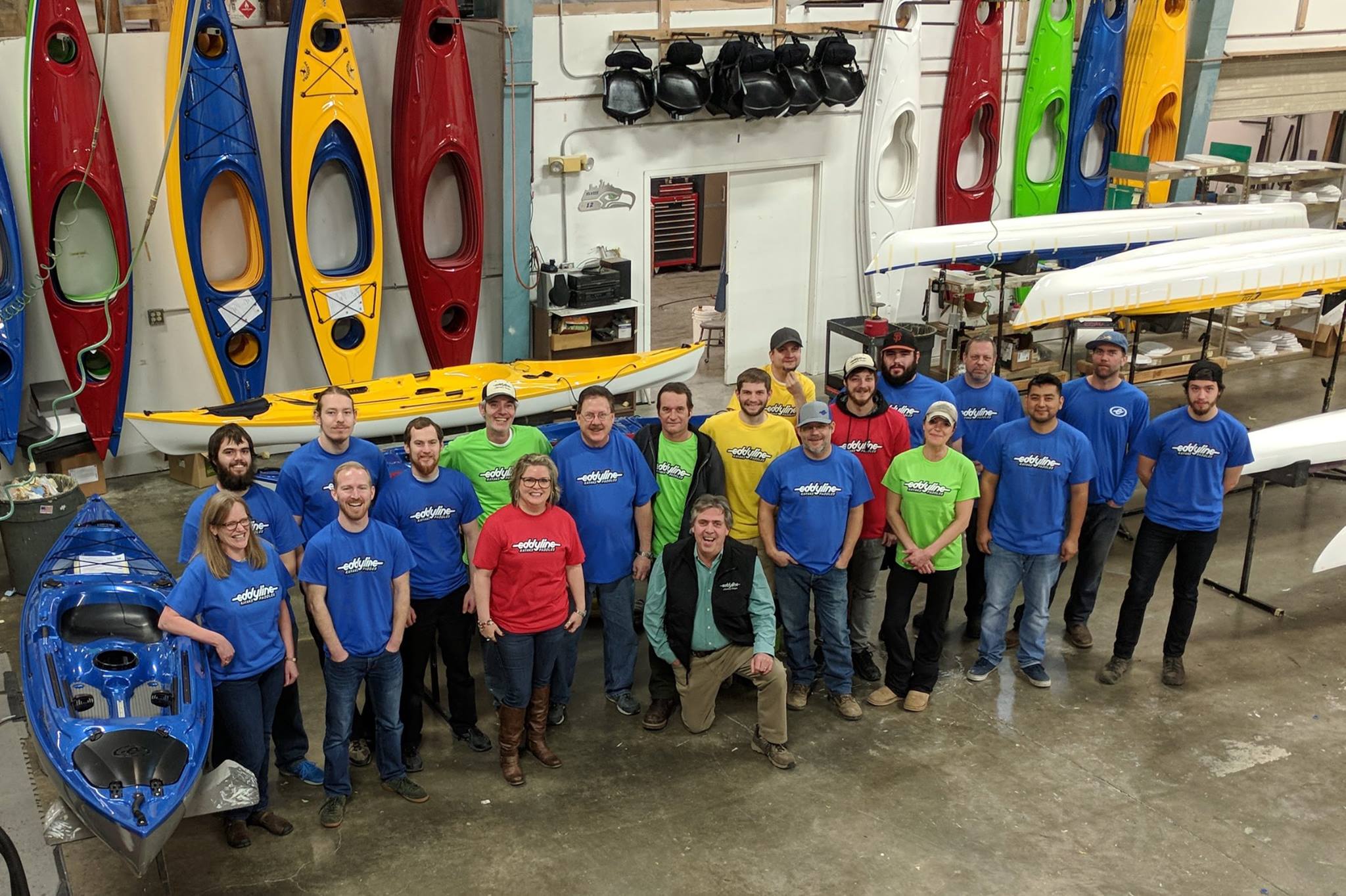 How many employees are you managing?
How many employees are you managing?
20.
(photo: the team)
What is their average tenure?
About 8 years.
Do the employees tend to be outdoor enthusiasts?
It's a mix.
Are you the outdoorsy, kayaking type or are you learning this industry?
I'm getting there. I made no bones about it when I met the owners. I said, "If you are looking for the hardcore kayak enthusiast, it's not me." They responded that they wanted someone who would not treat it like a lifestyle business, but who would treat it more like the business they had tried to create themselves.
I've definitely gotten into the sport. During the summer months, I was out on the water 2, 3 or 4 times per week. I am a little bit of a lightweight still. So, I am not putting on a full dry suit and going out into the ocean right now. But, give me another year; maybe, I'll be doing that. As the weather starts to warm up in the spring, I definitely look forward to getting back out on the water more.
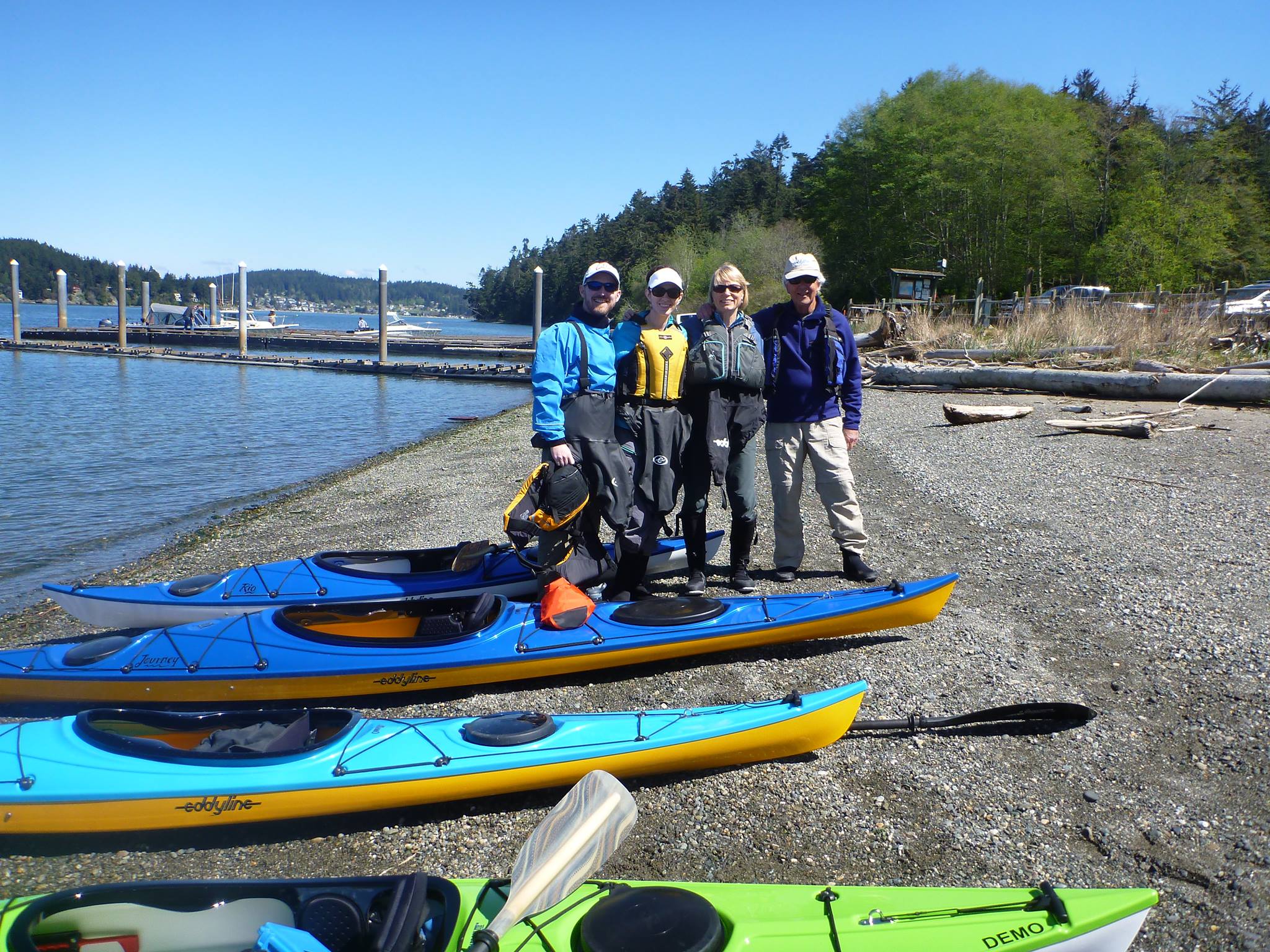 Did the couple that founded the company stay on for any length of time?
Did the couple that founded the company stay on for any length of time?
We have a one year consulting agreement. They still come in and do some work on graphic design and boat design. Generally, they had backed off day-to-day operations over the last 4 or 5 years prior to selling the company.
We have a one year consulting agreement. They still come in and do some work on graphic design and boat design. Generally, they had backed off day-to-day operations over the last 4 or 5 years prior to selling the company.
(photo: The Holleys with the previous owners).
Sounds like you have a good relationship with them because they've already backed off the day-to-day?
Yep, exactly. We have a great relationship with the sellers.
Are there aspects of the company you are changing or thinking of changing?
We make a product that is consumed by customers. We are in an industry where we are competing for a really discerning customer set - your outdoor enthusiast. So, we are working on a few new kayak designs. The biggest outward facing change is that we are moving our marketing spend online from traditional print avenues. I think the team was a little bit behind on that. Marketing analytics and online marketing is something we are spending more time doing now than we were before.
On the inside, definitely better accounting systems, corporate controls, inventory management, forecasting and purchasing are areas that we have really tightened up.
Where do you think you've had the most impact in your first six months?
Definitely on the accounting side. There was a mix of cash and accrual accounting. There wasn't an ability to see what was happening on a month to month basis. Inventory management and purchasing were done more as an art than a science. So, that's the biggest change. We're a little bit more button down now - something as simple as we come to our weekly meetings with an agenda and we have follow-up items on those.
A number of searchers have discussed having to transition a company from being democratic to becoming managing for performance. What is your experience?
This is company of people who work really hard, are very self-motivated and work well together. The 3 key managers all bought in. They all have equity and have promoted equity as well. I wouldn't say I am managing them in a traditional sense. It is still very democratic. It's a little bit more of my style as well, which is to lead from behind. And, have them view me as a resource, rather than as taskmaster. There's definitely some playing referee: Are we prioritizing A or B? If you are working on something similar or something that requires cooperation, let's make sure that's happening. But, it's definitely not like, "Let me see your sales funnel and your conversion rates. I want to see an X percent improvement and I'll take you to task if it's not there. Or, I'll give you a $5,000 bonus if it is." These are people who have been doing their job a long time and they know how to do it well. It's giving them more tools and resources than they had before and then instilling a level of coordination and prioritization that might have been lacking.
What does your typical day look like?
I can tell you what yesterday looked like. Yesterday, we started off with our team meeting. So, I prepped to have the dashboard and agenda ready to go. I had to preview a couple of items with some individuals. I had the team meeting. I worked on some end of the year performance reviews. Discussed a few accounting related questions with the controller. Then, I spent 3 hours working on the line actually, working quality control and packaging.
Were you hands-on?
Yes. I had glue on my hands at the end of the day and cuts from the edge where you tear the tape off when you're doing the boxing. It was definitely hands-on.
Why did you do that?
It was for my learning experience and also for company morale. We are down an individual. I had an open afternoon. We need to get the kayaks out. I could have tasked someone else to do it. But, they were all working on projects coming out of our team meeting that were more urgent than what I was working on. Working quality control and packaging is an excellent way to learn our products as well and to learn our production process.
What's in store for you over the next 6 months.
Over the next six months, I am going to be focused on revenue. Building direct relationships with our sales reps and with our key dealers in the field. We're doing a bit of a re-branding exercise together with our online marketing effort. Our goal is that as the weather starts to pick up we are able to reach the right prospect at the right time with the right message to drive them to our dealers and to convince them to buy a premium kayak at a premium price. That's what we are focused on right now as well as launching a couple of new products.
Are there things you would do differently if you could step back in time 6 or 8 months?
Yes. I would definitely say that spending less time in front of the computer screen being the Chief Analyst and more time talking to people in the company is something I could have done.
Why do you say that?
There were things that came up over time - minor things. I could have learned the business more quickly and had more of an impact if I had spent less time behind the computer. Part of it is we all gravitate towards things that we know. Yes, we had a problem with our accounting system. Yes, I needed to spend time fixing it. Part of the reason I spent time fixing it was that it was something I knew how to do. Something I didn't know how to do was how to support my head of production to find efficiencies on a production floor as it relates to re-ordering and purchasing of supplies and consumables. While I was sitting behind the computer, we had some stock out issues - which we were all able to get together and figure out what was going on and get some new systems in place. Had I been on the floor working with my production head we might have caught those sorts of things more quickly.
How do you think the lessons learned will impact you going forward? For instance, I had a boss who walked the floor every Monday and Friday morning.
Exactly. When I talked about my day yesterday where I spent 3 hours on the floor, there were certainly things I could have done in front of a computer screen instead. That's part of those lessons learned. I am asking myself the question each morning: "Who am I not talking to? And, what am I not asking them?" to make sure that I am not becoming too complacent in any one area of the business.
Any other lessons learned?
We came up with a plan - a 90-day plan, 1 year plan and 5 year plan. I'd say we got the direction right, but the speed and velocity we got wrong. Just recognizing that coming into a small company, there's not going to be a lot of resources on the side for unlimited skunk works projects of things that you would like to see better. Moderating expectations on how long it will take to make certain changes.
Sounds like it's taking twice as long as you expected?
Exactly.
I used to work in the golf industry, where there was a big seasonal ramp up of golf club inventory. In an ideal world, you'd have no clubs left in the warehouse and every customer satisfied at the end of the season. Is the kayak industry similar?
Exactly. A lot of what we do is more built to order. We generally aren't stocking inventory unless it's earlier in the season as opposed to later in the season. We're definitely crossing our fingers that the dealers got their pre-season orders right. But, sell-through hasn't been an issue for the company.
Do you have any plans to acquire other brands under your umbrella or develop a new brand?
I don't think so. A lot of our adjacent sectors in the paddle sport industry are really challenged. If you look strictly in kayaks, the lower end models are in a race to the bottom, where you are getting squeezed by big box retailers on the pricing side. Then, on the costs, you are at the whim of raw materials which is a huge percentage of your total costs. The lower end doesn't look that great. It would be near impossible to create that scale from scratch where we could have a cost advantage. If we were to buy a company it would be massively larger in scale and would have significantly lower margins than we do. The upper end, the really high performing sea kayaks, is more of a cottage industry. The market size is tiny and shrinking. Plus, we don't have a process advantage there as it's all very manual. So, I don't really see that. In terms of moving into accessories or whatnot, there's not a big outstanding market need. So, my guess is "No." We have a lot of opportunity to grow our niche and our segment and then continue to service it profitably without radically changing the company by jumping into a less attractive niche.
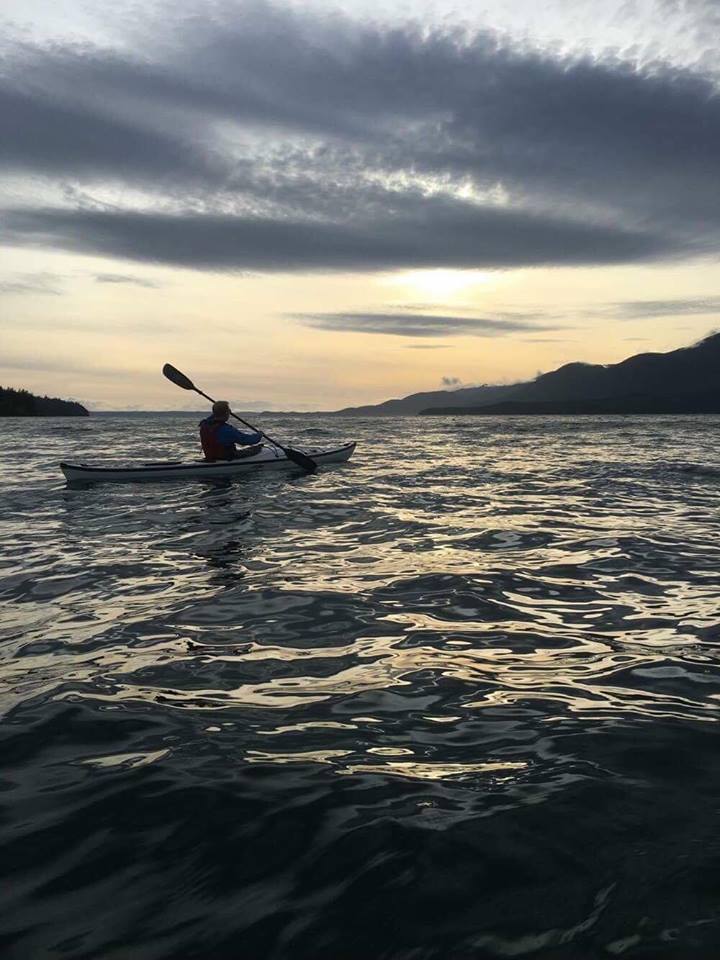 Do you have an advisor familiar with the outdoor industry? How are you getting up to speed other than coming to the company every day?
Do you have an advisor familiar with the outdoor industry? How are you getting up to speed other than coming to the company every day?
It's really that. My sales reps and dealers have been really helpful in training me in the industry. There aren't a ton of lessons from the outdoor products industry as a whole that translate super-well. I do have 3 outside investors for general purpose management advice. The deep industry knowledge already resides within the company or its network of customers.
Thanks so much for your time.
I appreciate what you guys are doing in building the community.
Summary of Insights
Here are a few of the key takeaways from our discussion with Scott:
- " You can successfully use your personal connections within your geographic area to generate warm introductions in locating target entities, especially if you've made an investment of time and energy in that community before your search.
- " Get away from the computer screen. Consider whether you are doing a project because you're comfortable with it, and perhaps you need to step more outside of your comfort zone.
- " Ask yourself: "Who am I not talking to? And, what am I not asking them?"
from Bentley University in Boston, MA, USA
from Columbia University in Washington, DC, USA